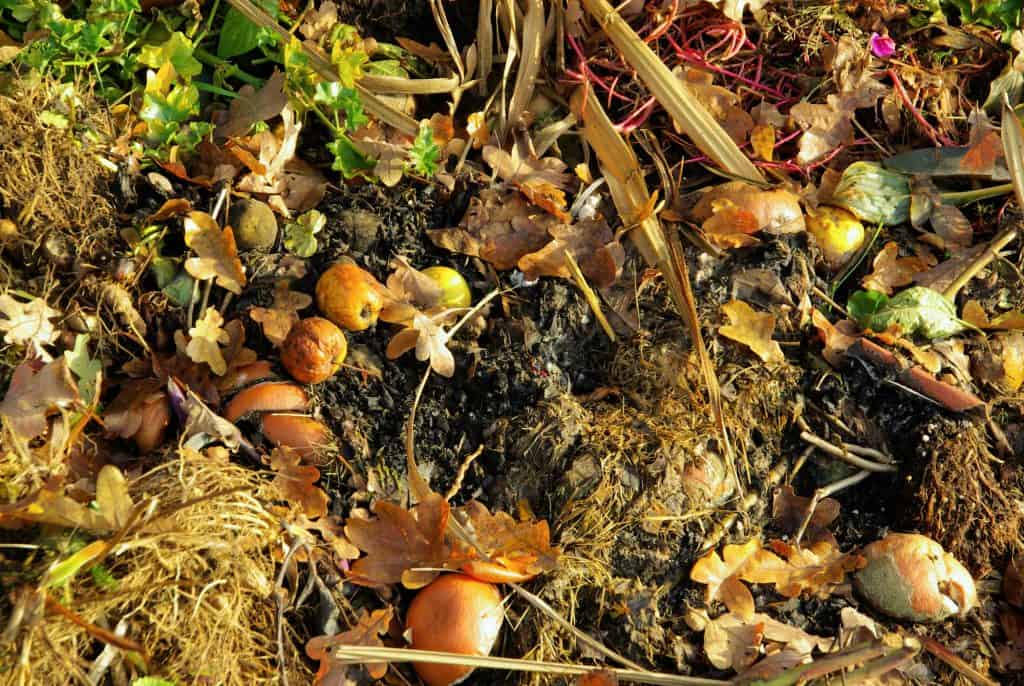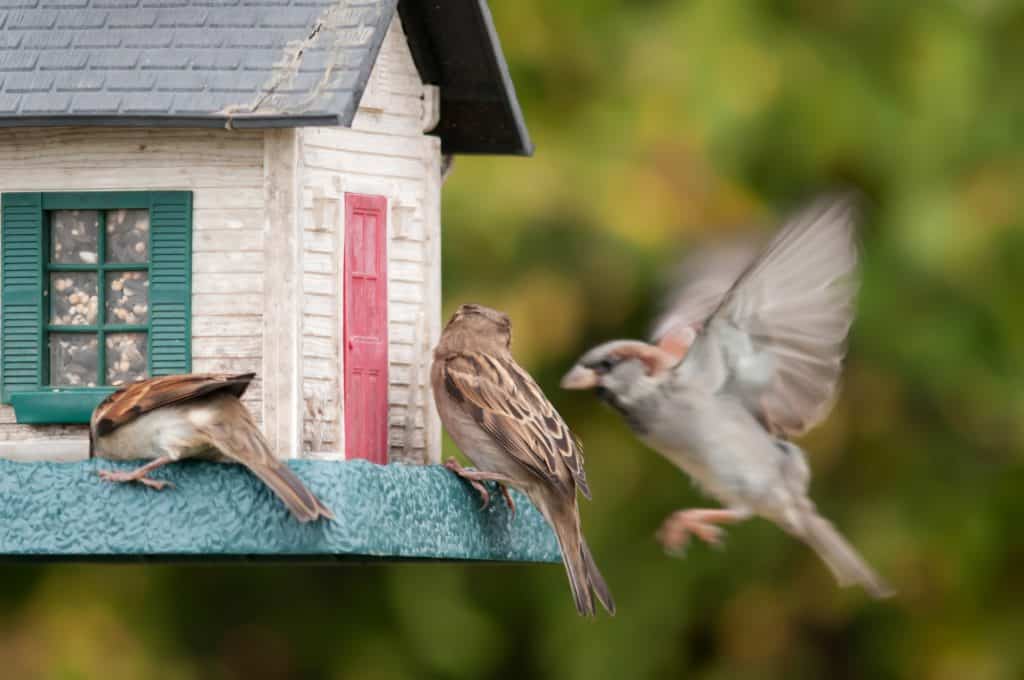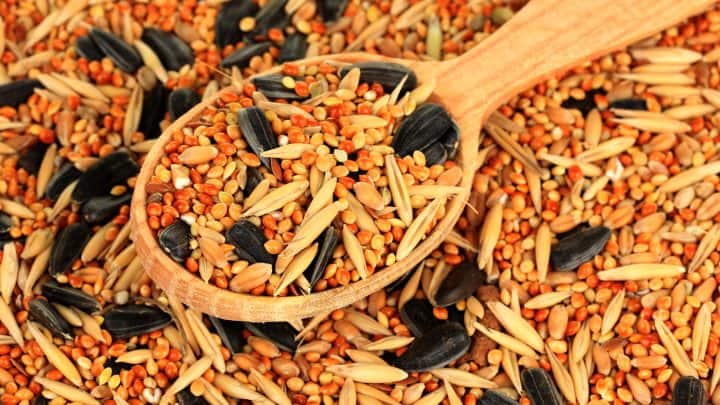Being a bird owner means dealing with leftover birdseed more often than not. It can be frustrating to have a lot of leftover seeds, as you might not know what to do with them if your birds don’t consume them all.
Luckily, you can use it for more than to feed birds — this article will let you know what to do with leftover birdseed.
You can use leftover birdseed for household activities like composting, feeding outdoor bird species, and making heat bags. Although you can use leftover birdseed, it’s vital to ensure they haven’t gone bad first.
I’ll elaborate on the points mentioned above and what not to do with leftover birdseed. Throwing away perfectly fresh leftover birdseed is something no one would want to do, so keep reading to find out how to make the most of your leftover seeds.
Ideas For Reusing Leftover Birdseed
If you enjoy DIYs and love finding alternative uses for things, you’ll be pleased to know that you don’t have to dispose of the remaining birdseed. The multiple benefits of leftover seeds will be certain to keep you and your wallet happy.
Throw It In the Yard
If you’re not into gardening and maintaining your soil, you can use your leftover birdseed to feed the birds outdoors. Feeding backyard birds or wild birds these seeds (instead of breadcrumbs) is far more beneficial and healthier.
If you have a bird feeder, you’ll want to put the bird seed there, as it’ll be easily accessible for the birds, and they’ll know where to find the food. While bird feeders are made for this purpose, it’s also okay if you don’t have a bird feeder. The birds will get the idea.
If that’s the case, you can scatter some leftover birdseed onto the ground, and the birds will be just as happy. Please note — this can result in birds using the bathroom in your outdoor space. Be sure you’re ready for that possibility!
It’s important to note that some birds can be picky, so not all kinds of birdseed will appeal to them. It’s common for people to see their bird feeders still full of bird food or the seeds still on the ground from birds not bothering to pick them.
This lack of appetite may be because all the birds are full from eating live or dead insects, or it could be because your neighborhood already has many houses that feed birds. You might even be scaring the birds away with wind chimes. However, it could also be because you’re using inadequate seeds.
Some popular seeds among birds include:
- Millet
- Sunflower seeds
- Cracked corn
- Milo
- Nyjer
- Black oil sunflower seeds
Compost It

Compost is a mixture of various organic kitchen ingredients used to fertilize the soil. Things such as fruit and vegetable skins are most commonly used for compost, as they’re rich in nutrients and highly beneficial for soil health.
You can use your leftover birdseed in compost, and your soil will love it.
Birdseed is rich in fiber, protein, vitamins, and minerals so there’s no doubt that your leftover birdseed will significantly improve your soil’s health. The next time you’re chopping up veggies or peeling fruit, keep the skin and use it for compost, and feel free to throw in a bunch of your leftover birdseed. Bird droppings are also great for soil, so you can use some in your compost.
Some benefits of using compost include:
- Promotes plant growth.
- Reduces waste by recycling.
- Reduces soil erosion by binding the soil.
- Provides the soil with much-needed nutrients and minerals.
Make a Heat Bag
Most homemade heat bags use grains such as rice and wheat for filling, so birdseed makes a DIY heat pack an excellent option. Cotton is generally the go-to for heat bags, which means that a cotton pillowcase, t-shirt, or sock is a suitable fabric choice for the heat pack.
Heat bags effectively relieve tense and achy muscles and is also an excellent way of easing menstrual cramps.
You want to use non-metallic filler material so that it won’t spark in the microwave. Note that heating the bag for too long can cause the filling to burn, so depending on the strength of your microwave, three minutes should be the maximum heating time.
Bird seed makes an effective filler material for heat bags, namely millet and whole dried corn (not popcorn), but heat retention may differ according to what seeds you use. However, making a heat bag from scratch is a fun activity and effectively keeps you warm, nonetheless.
What Not To Do With Leftover Birdseed
Although there are many do’s for your leftover birdseed, there are also don’ts. Many people may think that birdseed is so versatile you can feed them to other animals, which is untrue and can be dangerous. To prevent misuse of birdseed, keep reading.
Don’t Feed It To Wild Animals
Since birdseed is full of nutrients/essential minerals and perfect for feeding birds, it could be tempting to feed them to other animals. You may think that since birdseed consists of mostly grain and is full of vitamins, it should be okay to give them to a dog or cat.
However, birdseed is not meant to be fed to animals other than birds.
I’ve heard plenty of people saying they supplement some seeds from bird food into their dog’s food bowl for additional nutritional value. Although it may have been done with good intentions, it can be detrimental to the animal’s health if done repetitively.
If you want to add seeds and grain into an animal’s diet, purchase them separately instead of in birdseed.
It’s important to note that although certain animals besides birds can consume specific seeds and grains in birdseed, they should be kept away from wild and domestic animals. Birdseed is assorted and made specifically for birds, so stick to only feeding it to your backyard birds.
Don’t Throw Away Leftover Birdseed if It’s Still Fresh
Many bird owners run into the problem of having plenty of fresh birdseed leftover because their bird/s might not like that specific birdseed. In such a situation, you may think the only option is to dispose of the birdseed since your bird doesn’t like it.
It can be highly frustrating if your bird doesn’t like their food, and you might think you just wasted good money on birdseed. Although the birdseed might’ve been no good, there’s also a chance your bird is simply picky, especially if you purchased a different brand.
The best option in this scenario is to feed the leftover birdseed to backyard birds or utilize them in the ways I mentioned earlier.

People Also Ask: Will Birds Eat Old Birdseed?
Birds will eat old birdseed, granted it isn’t moldy or foul. However, some birds may realize that the seeds are stale and might refuse to eat them. Depending on how old the birdseed is, your chirpy friend may or may not have a go at them.
Birdseed typically has a shelf life of around 6-12 months if stored correctly. After the months have gone by and you still have some seeds left, it’s normal for them to become a little stale.
Stale birdseed can be pretty unappetizing, so I wouldn’t recommend feeding it to them.
Signs Your Birdseed Has Spoiled
It’s crucial to know the signs of spoiled birdseed, as some signs aren’t so obvious. Feeding a bird rotten seeds can compromise their health and make them unhappy, so there are a few signs you should look out for to prevent giving birds spoiled food.
Here are some signs your birdseed has spoiled:
- Mold: A common sign of something gone bad is mold. If you notice mold spores on your birdseed, it’s best to throw it away immediately.
- Rancid smell: Most seeds have a high oil content, so they’ll produce a sharp, musty odor that can’t go unnoticed when they spoil.
- Discoloration: Most discoloration results from aging, so if your seeds look dull or are a completely different color than when you bought them, it’s probably time to toss them.
- Insects: Creatures like worms, spiders, and moths like birdseed. If you notice webs or anything crawling within the birdseed, you’ll want to get rid of it.
Store the seeds in an airtight container in a cool, dry spot to prevent your birdseed from spoiling or being infested.
Final Thoughts
Leftover birdseed can be a pain, especially if your bird doesn’t like that birdseed. Thankfully, there are ways you can use your leftover birdseed to your advantage, and I hope this article has helped you get some ideas!
Sources
- Audubon: 11 Tips for Feeding Backyard Birds
- The Spruce: Keep Birdseed Fresh and Safe with These Storage Tips
- The Spruce: How to Tell If Sunflower Seed or Other Birdseed Is Spoiled
- US Composting Council: Benefits of Compost
- The Spruce: Choose the Best Birdseed for Your Backyard Birds
- Sew4Home: Best Organic Fillers For Warming Pads
- Bird Informer: Never Before Shared Answers For How Long Does Bird Seed Last
- Oureverydaylife: Does Bird Seed go Bad?

